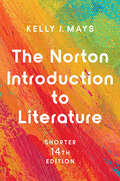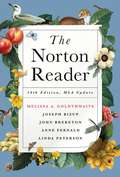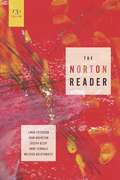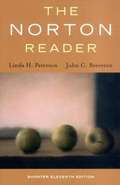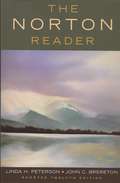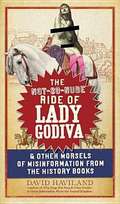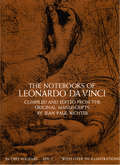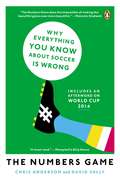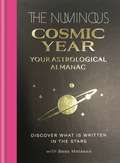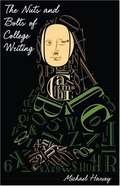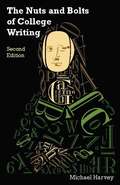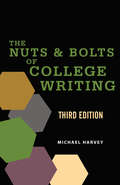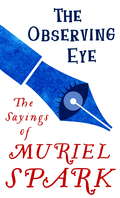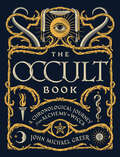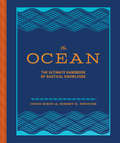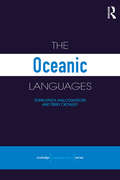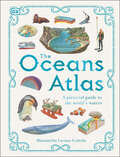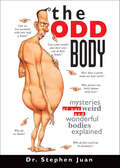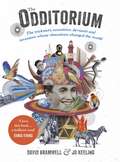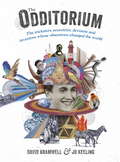- Table View
- List View
The Norton Introduction to Literature (Shorter Fourteenth Edition)
by Kelly J. MaysHelp all students become close readers and confident writers The Norton Introduction to Literature?offers the trusted writing and reading guidance students need, along with an exciting mix of the stories, poems, and plays instructors want. The Shorter Fourteenth Edition is the most inclusive ever, with more contemporary and timely works sure to engage today’s students. New media-rich pedagogical tools further foster close reading and careful writing, making this book the best choice for helping all students understand, analyze, and write about literature.
The Norton Reader (Fourteenth Edition, MLA Update)
by Joseph Bizup Melissa Goldthwaite John Brereton Anne Fernald Linda PetersonThe Norton Reader began as an attempt to introduce students to the essay as a genre, and to create an anthology of excellent nonfiction writing. This new edition continues that tradition, offering a wide selection of essays on a broad range of subjects, and including examples of the kinds of writing students are most assigned, from profiles and arguments to narratives and analyses.
The Norton Reader: An Anthology of Nonfiction (13th Edition)
by Linda H. Peterson John C. Brereton Joseph Bizup Anne E. Fernald Melissa A. GoldthwaiteThe Norton Reader began as an attempt to introduce students to the essay as a genre, and to create an anthology of excellent nonfiction writing. This new edition offers a wide selection of essays on a broad range of subjects--from Jhumpa Lahiri recalling the town in Rhode Island where she grew up to Peter Singer contemplating how much billionaires should give, to Rita Dove meditating on her religious heritage.
The Norton Reader: An Anthology of Nonfiction (Shorter 11th edition)
by Linda H. Peterson John C. BreretonSince the first edition in 1965, The Norton Reader has upheld a tradition of anthologizing excellent prose.
The Norton Reader: An Anthology of Nonfiction (Shorter 12th edition)
by Linda H. Peterson John C. BreretonWith readings in a wide variety of genres, subjects, and styles, it offers the largest and most thoughtfully chosen collection of essays for composition students today. The Twelfth Edition has been carefully revised, with 25 percent of its readings new and an extensive new introduction to reading and writing with guidelines to all the elements cited in the WPA Outcomes Statement. Available in two editions: a full edition, with 206 readings; and a shorter edition, with 123.
The Not-So-Nude Ride of Lady Godiva & Other Morsels of Misinformation from the History Books
by David HavilandIt is said that history is written by the winners. However, the “winners” aren’t always the best historians. Enter David Haviland, to set the record straight. In his quirky, inimitable style, Haviland separates fact from fiction regarding some of history’s most well-known people and events, such as: Lady Godiva: By far, history’s most famous nudist equestrian. But how nude was she, really? And how did this same legend give rise to the term “Peeping Tom”? The Boston Tea Party: What was the cause of this famous “party” that wasn’t really a party? (Hint: If you guessed a rise in taxes, you’re dead wrong!) World War I: How did a directionally challenged chauffeur spark the Great War? Queen Victoria: Nowadays, the word “Victorian” is synonymous with stuffy prudishness. But would a prude pose nude for a provocative portrait, or become “close” with a young Indian servant? In The Not-So-Nude Ride of Lady Godiva, Haviland untangles fallacy, farce, and misrepresentation of historic proportions. The end result is a wholly fascinating, highly educational compendium of historical folly that will entertain readers young and old! .
The Notebooks of Leonardo da Vinci, Vol. 1 (Dover Fine Art, History of Art #1)
by Leonardo Da VinciScientist, painter, mechanical engineer, sculptor, thinker, city planner, storyteller, musician, architect — Leonardo da Vinci, builder of the first flying machine, was one of the great universal geniuses of Western civilization. His voluminous notebooks, the great storehouse of his theories and discoveries, are presented here in 1566 extracts that reveal the full range of Leonardo's versatile interest: all the important writings on painting, sculpture, architecture, anatomy, astronomy, geography, topography, and other fields are included, in both Italian and English, with 186 plates of manuscript pages and many other drawings reproduced in facsimile size.The first volume, which contains all of Leonardo's writings on aspects of painting, includes discussions of such basic scientific areas as the structure of the eye and vision, perspective, the science of light and shade, the perspective of disappearance, theory of color, perspective of color, proportions and movements of the human figure, botany for painters, and the elements of landscape painting. A section on the practice of painting includes moral precepts for painters and writings on composition, materials, and the philosophy of art. The second volume contains writings on sculpture, architecture (plans for towns, streets, and canals, churches, palaces, castles, and villas, theoretical writings on arches, domes, fissures, etc.), zoology, physiology (including his amazingly accurate theories of blood circulation), medicine, astronomy, geography (including has famous writings and drawings on the movement of water), topography (observations in Italy, France, and other areas), naval warfare, swimming, theory of flying machines, mining, music, and other topics.A selection of philosophical maxims, morals, polemics, fables, jests, studies in the lives and habits of animals, tales, and prophecies display Leonardo's abilities as a writer and scholar. The second volume also contains some letters, personal records, inventories, and accounts, and concludes with Leonardo's will. The drawings include sketches and studies for some of Leonardo's greatest works of art — The Last Supper, the lost Battle of Anghiari, The Virgin of the Rocks, and the destroyed Sforza monument.
The Numbers Game
by Chris Anderson David SallyMoneyball meets Freakonomics in this myth-busting guide to understanding--and winning--the most popular sport on the planet <P><P>Innovation is coming to soccer, and at the center of it all are the numbers--a way of thinking about the game that ignores the obvious in favor of how things actually are. In The Numbers Game, Chris Anderson, a former professional goalkeeper turned soccer statistics guru, teams up with behavioral analyst David Sally to uncover the numbers that really matter when it comes to predicting a winner. Investigating basic but profound questions--How valuable are corners? Which goal matters most? Is possession really nine-tenths of the law? How should a player's value be judged?--they deliver an incisive, revolutionary new way of watching and understanding soccer.
The Numbers Games
by Chris Anderson David SallyMoneyball meets Freakonomics in this myth-busting guide to understanding#151;and winning#151;the most popular sport on the planet Innovation is coming to soccer, and at the center of it all are the numbers#151;a way of thinking about the game that ignores the obvious in favor of how things actually are. In The Numbers Game, Chris Anderson, a former professional goalkeeper turned soccer statistics guru, teams up with behavioral analyst David Sally to uncover the numbers that really matter when it comes to predicting a winner. Investigating basic but profound questions#151;How valuable are corners? Which goal matters most? Is possession really nine-tenths of the law? How should a player’s value be judged?#151;they deliver an incisive, revolutionary new way of watching and understanding soccer.
The Numinous Cosmic Year: Your astrological almanac
by The Numinous Bess MatassaYour total guide to the astrology of 2022, The Numinous Cosmic Year is part astro planner, part cosmic almanac. A guide to both the shifting astrological currents and the influence of the celestial bodies on our daily lives, this interactive monthly planner will unlock the language of astrology and help you map your path forwards and within.As well as a complete astrological overview of what's in store for 2022 and detailed instructions for how to use the book, discover what each month has in store for your sun sign, the key astrological dates for each month, which elements to work with, and journal prompts to ignite your inner journey. Flow with the waxing and waning of the moon, get ahead of each planet's retrograde phase, and plan your year in accordance with the movements of the stars.
The Numinous Cosmic Year: Your astrological almanac
by The Numinous Bess MatassaYour total guide to the astrology of 2022, The Numinous Cosmic Year is part astro planner, part cosmic almanac. A guide to both the shifting astrological currents and the influence of the celestial bodies on our daily lives, this interactive monthly planner will unlock the language of astrology and help you map your path forwards and within.As well as a complete astrological overview of what's in store for 2022 and detailed instructions for how to use the book, discover what each month has in store for your sun sign, the key astrological dates for each month, which elements to work with, and journal prompts to ignite your inner journey. Flow with the waxing and waning of the moon, get ahead of each planet's retrograde phase, and plan your year in accordance with the movements of the stars.
The Nuts and Bolts of College Writing
by Michael HarveyEngagingly written and filled with judicious examples, this short, practical, inexpensive handbook combines advice on writing clearly and plainly, structuring a piece of argumentative writing, and avoiding grammatical and other common mechanical errors -- including those in quoting and citing.
The Nuts and Bolts of College Writing
by Michael HarveyOUT OF PRINT EDITION - 2nd Edition now available "With concision and wit, Harvey shows college students how to write papers that are clear, cogent--and also stylish." --James Miller, Editor, Dædalus
The Nuts and Bolts of College Writing
by Michael HarveyThis "worthy successor to Strunk and White" now features an expanded style guide covering a wider range of citation cases, complete with up-to-date formats for Chicago, MLA, and APA styles.
The Nuts and Bolts of College Writing
by Michael HarveyUpdated for the needs of today's students—and with handy citation style guides adapted from The Chicago Manual of Style, Seventeenth Edition, the MLA Handbook, Eighth Edition, and the Publication Manual of the APA , Seventh Edition—the third edition of The Nuts and Bolt of College Writing offers essential guidance for college writers at all levels.Praise for previous editions: "This wonderful little book has helped improve the level of writing in all the courses I teach. No one should graduate from college without having used it." —Gonzalo Munevar, Lawrence Technological University "With concision and wit, Harvey shows college students how to write papers that are clear, cogent, and also stylish." —James Miller, editor, Dædalus "Simply the best guide to clear and effective writing since Strunk and White. Indispensable for students—and for their teachers." —Terry Nardin, University of Wisconsin–Milwaukee
The Observing Eye: The Sayings of Muriel Spark
by Muriel SparkThe Observing Eye is a collection of Muriel Spark's brilliant asides, sayings, and aphorisms. No other writer can hold a candle to her wry, puckish observations:'Neurotics are awfully quick to notice other people's mentalities.''It is impossible to persuade a man who does not disagree, but smiles.''The sacrifice of pleasure is of course itself a pleasure.''Be on the alert to recognize your prime at whatever time in your life it may occur.''Ridicule is the only honourable weapon we have left.'Spark's striking insights are precise and unforgettable - they will make you laugh and nod in agreement, with a wicked smile on your face. Her wise words never fail to hit exactly the right note.
The Observing Eye: The Sayings of Muriel Spark (Virago Modern Classics #781)
by Muriel SparkThe Observing Eye is a collection of Muriel Spark's brilliant asides, sayings, and aphorisms. No other writer can hold a candle to her wry, puckish observations:'Neurotics are awfully quick to notice other people's mentalities.''It is impossible to persuade a man who does not disagree, but smiles.''The sacrifice of pleasure is of course itself a pleasure.''Be on the alert to recognize your prime at whatever time in your life it may occur.''Ridicule is the only honourable weapon we have left.'Spark's striking insights are precise and unforgettable - they will make you laugh and nod in agreement, with a wicked smile on your face. Her wise words never fail to hit exactly the right note.
The Occult Book: A Chronological Journey from Alchemy to Wicca (Union Square & Co. Chronologies)
by John Michael GreerExplore the occult from ancient times to the modern day with one of its most respected scholars and practitioners. Take an enlightening journey through occult history, exploring 100 dramatic incidents, arcane knowledge, and key historical figures from around the world. John Michael Greer delves into two millennia of tradition, from the earliest alchemists to pagan rituals; from the Philosopher&’s Stone to Cabala, the first tarot, and the Knights Templar; and from the first horoscopes to fortune-telling trials and the birth of modern witchcraft, or Wicca. Each entry features a stunning image or intriguing item of ephemera.
The Ocean: The Ultimate Handbook of Nautical Knowledge
by Chris Dixon Jeremy K. SpencerThe Ocean: A Handbook is a treasure trove of information and inspiration for anyone with an abiding love for the ocean.This beautiful book features short-subject deep dives on topics like science, sailing, kayaking, surfing, diving, survival, and much more. From experienced seafarers to ocean novices, for those about to ride their first wave, stand-up paddle on a dive, find a simple "one pan" galley recipe, or identify a bird that landed on the bow, The Ocean is rich with how-to advice and instruction.• Features expert consultation and entertaining asides about the sea• Filled with more than 200 informative and evocative illustrations• A compilation of miscellany and delight for the ocean loverIn The Ocean, a sense of respect and wonder for the ocean come together under a foil-stamped and textured cover. This book is the go-to guide for anyone captivated by the wonder, power, and mystery of the sea.• An entertaining, authoritative, and captivating guide to all activities involving the sea• The ultimate book for sailors, fishers, surfers, beachcombers, and ocean lovers everywhere• Perfect for people who live in coastal areas, those who love the ocean, sailing, and ships• You'll love this book if you love books like SAS Survival Handbook by John Wiseman, Dangerous Book for Boys by Conn Iggulden, and Cabin Porn by Beaver Brook.
The Oceanic Languages (Routledge Language Family Ser.)
by John Lynch Terry Crowley Malcolm RossThis new volume of the Language Family Series presents an overview of the Oceanic subgroup of the Austronesian languages, spread across a region embracing eastern Indonesia, Melanesia, Polynesia, and Micronesia. It provides sufficient phonological and grammatical data to give typologists and comparativists a good idea of the nature of these languag
The Oceans Atlas (DK Pictorial Atlases)
by DKDelve beneath the world&’s oceans to discover their physical features, wildlife, and threats to their future.How do waves form? Where is the deepest part of the ocean? What is a black smoker? What would the ocean floor look like without water? What lives in a coral reef? If you find yourself seeking the answers to these questions, then this may be the book for you!Introducing The Oceans Atlas – a beautifully illustrated guide to Earth&’s oceans for kids aged 9-12. Explore key features of the oceans from seafloor to surf, including tides and trenches, currents and coastline, volcanoes and vents. Discover the variety of marine life from the biggest sharks and whales to the tiniest invertebrates and polyps. Find out the human impact on our seas and how we can create a healthier and cleaner future.Dive straight into this ocean book for kids, offering: - An illustrated guide to the innermost depths of our oceans that shows details not visible in photographs.- A variety of maps from seafloor topography and cross-sections to shipping routes and ocean resources. - Original and retro-feel illustration style combined with modern fonts which creates a different approach compared to photographic or CGI-based books.From coral reefs to hazardous seas, The Oceans Atlas is an engaging, fact-packed guide for children aged 9–12, especially those interested in natural science, geography, or ecology. So whether you&’re a budding young geographer, or a teacher looking for an engaging resource to use in your classroom, this oceans encyclopedia is full of fascinating facts to impress young readers time and time again. At DK, we believe in the power of discovery. So why stop there? If you like The Oceans Atlas, then why not complete the collection? Take a peek inside the beautiful and absorbing world of birds with The Bird Atlas, explore the complex animal kingdom with The Animal Atlas, reveal the inner workings of the human body with The Body Atlas and take a trip around the globe with The Earth Atlas.
The Odd Body: Mysteries of Our Weird and Wonderful Bodies Explained
by Stephen JuanIf you've ever had a question about your body (maybe one you're afraid to ask?), this book is for you. Things like why we yawn, why skin wrinkles after a bath, or even whether it's possible to keep a severed head alive: The Odd Body explains these and many other silly, weird, bizarre, and fascinating body mysteries. Dr. Stephen Juan entertains and rivets readers with his detailed answers.Reading The Odd Body is like having your doctor patiently answer all your random questions, one by one. But Dr. Juan goes well beyond the usual and ordinary things people wonder about bodies, like why most individuals are right-handed or why you get chills when chalk screeches across a blackboard. He also tells readers how a dead body is made into a mummy, the success rate of those who bore holes in their own heads to relieve headaches, and much, much more.The Odd Body is a unique combination of fun and fascinating material that's delivered by an expert who happens to be a great storyteller. The book's question-and-answer format makes it easy to pick up, turn to any page, and immediately become drawn into the intricacies of anatomy and physiology while gaining a better understanding of the human need to know more about ourselves.
The Odditorium: The Tricksters, Eccentrics, Deviants and Inventors Whose Obsessions Changed the World
by David Bramwell'I LOVE THE BOOK... A BRILLIANT READ' Chris Evans, Radio 2 Breakfast Show'This book, that I approached with caution, turns out to be magnificent. Tested it with the Moondog entry. Passed A+' Danny Baker, Radio 5LiveA CELEBRATION OF CURIOSITY AND OBSESSIONStep into a world of gloriously unpredictable characters such as Ivor Cutler, Quentin Crisp, Joe Orton, Reginald Bray, Ken Campbell, Screaming Lord Sutch, Sun Ra, Buckminster Fuller, Timothy Leary and Ayn Rand.The Odditorium is a playful re-telling of history, told not through the lens of its victors, but through the fascinating stories of a wealth of individuals who, while lesser-known, are no less remarkable.Throughout its pages you'll learn about the antics and adventures of tricksters, eccentrics, deviants and inventors. While their stories range from heroic failures to great hoaxes, one thing unites them - they all carved their own path through life. Each protagonist exemplifies the human spirit through their dogged determination, willingness to take risks, their unflinching obsession and, often, a good dollop of eccentricity.Learn about Reginald Bray (1879-1939), a Victorian accountant who sent over 30,000 singular objects through the mail, including himself; Muriel Howorth (1886-1971), the housewife who grew giant peanuts using atomic energy; and Elaine Morgan (1920-2013), a journalist who battled a tirade of prejudice to pursue an aquatic-based theory of human evolution, which is today being championed by David Attenborough. While many of us are content to lead a conventional life, with all of its comfort and security, The Odditorium reminds us of the characters who felt compelled to carve their own path, despite risking ostracism, failure, ridicule and madness. Outsider artists, linguists, scientists, time travellers and architects all feature in The Odditorium, each of whom risked ostracism, ridicule and even madness in pursuit of carving their own esoteric path, changing the world in wonderful ways.'BRAMWELL CLEARLY HAS AN EYE FOR THE ODDBALL AND ARCANE' The Guardian
The Odditorium: The tricksters, eccentrics, deviants and inventors whose obsessions changed the world
by David Bramwell Jo Keeling'I LOVE THE BOOK... A BRILLIANT READ' Chris Evans, Radio 2 Breakfast Show'This book, that I approached with caution, turns out to be magnificent. Tested it with the Moondog entry. Passed A+' Danny Baker, Radio 5LiveA CELEBRATION OF CURIOSITY AND OBSESSIONStep into a world of gloriously unpredictable characters such as Ivor Cutler, Quentin Crisp, Joe Orton, Reginald Bray, Ken Campbell, Screaming Lord Sutch, Sun Ra, Buckminster Fuller, Timothy Leary and Ayn Rand.The Odditorium is a playful re-telling of history, told not through the lens of its victors, but through the fascinating stories of a wealth of individuals who, while lesser-known, are no less remarkable.Throughout its pages you'll learn about the antics and adventures of tricksters, eccentrics, deviants and inventors. While their stories range from heroic failures to great hoaxes, one thing unites them - they all carved their own path through life. Each protagonist exemplifies the human spirit through their dogged determination, willingness to take risks, their unflinching obsession and, often, a good dollop of eccentricity.Learn about Reginald Bray (1879-1939), a Victorian accountant who sent over 30,000 singular objects through the mail, including himself; Muriel Howorth (1886-1971), the housewife who grew giant peanuts using atomic energy; and Elaine Morgan (1920-2013), a journalist who battled a tirade of prejudice to pursue an aquatic-based theory of human evolution, which is today being championed by David Attenborough. While many of us are content to lead a conventional life, with all of its comfort and security, The Odditorium reminds us of the characters who felt compelled to carve their own path, despite risking ostracism, failure, ridicule and madness. Outsider artists, linguists, scientists, time travellers and architects all feature in The Odditorium, each of whom risked ostracism, ridicule and even madness in pursuit of carving their own esoteric path, changing the world in wonderful ways.'BRAMWELL CLEARLY HAS AN EYE FOR THE ODDBALL AND ARCANE' The Guardian
